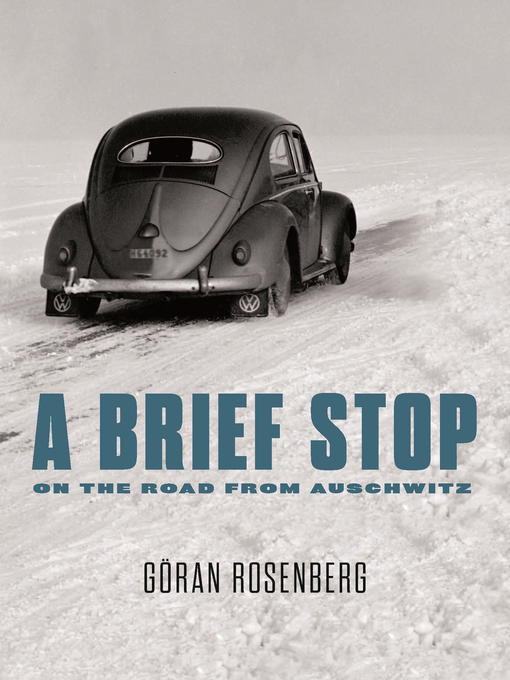
A Brief Stop on the Road from Auschwitz
کتاب های مرتبط
- اطلاعات
- نقد و بررسی
- دیدگاه کاربران
نقد و بررسی

November 15, 2014
A searing survivor's tale told by a son.This English language debut by Swedish writer and TV personality Rosenberg is both a personal journey and a son's letter to a loving father, David, who survived Nazi Germany but never got over it. Drawing on both historical research and family documents, the author re-creates the life of a Polish Jew who saw his hometown turned into a barbed wire hell in which 200,000 people, including his father and brother, lost their lives. Throughout the book, Rosenberg tries to picture what David saw and heard: Was he there when Jewish leader Chaim Rumkowski told the gathered throng that he had reached a bargain with the Nazis and only sick people and small children would be liquidated? David was sent to Auschwitz, which he survived only to spend the last desperate days of the war at the Wobbelin concentration camp, where Nazis tried killing off as many Jews as possible before the liberators arrived. After the war, the ambitious David and his wife settled in the Swedish factory town of Sodertalje, outside of Stockholm, for what they hoped would only be a "brief stop" on the road to a bigger, brighter future. Instead, it was a dead end. David's dreams were at constant war with his recurring nightmares. "What I realize, much later," writes the author, "is that time after time you make a run-up toward the horizon, and time after time you fall back to earth again." Rosenberg was constantly asking his father why: Why this direction and not that one? Why didn't you follow through on your dreams? It isn't until the devastating ending that we see just why these questions loomed so large in his head. A deeply felt story and a sobering reminder of the long shadows of the Holocaust.
COPYRIGHT(2014) Kirkus Reviews, ALL RIGHTS RESERVED.

February 1, 2015
Rosenberg's road trip through memories won the 2012 August Prize in Sweden, deservedly so, and is now translated for English readers. The author, long curious about his parents' WWII concentration-camp provenance, takes off to see for himself, using their letters as guides, where they were imprisoned and later lived, writing descriptively, frankly, and with a strong eye for detail, often directly addressing his father with questions. How did his parents survive? They rode the trains; they landed in the camps; they were sorted. A box of food saved his father's life. He was also able-bodied enough to be chosen to work in a factory. The letters he writes to the young woman he would marry, the author's mother, are heartrending though circumspect. There is no easy Holocaust book. This one, with its bolstering photographs and its intensely personal aspect, is brilliantly sorrowful. The son's pilgrimage, augmented by research, quotes, and memories, is a hard road to walk, just as the original journey was for his father, in particular. As Rosenberg notes, Luck, chance, and freak are the stones with which every road from Auschwitz is paved. (Reprinted with permission of Booklist, copyright 2015, American Library Association.)

























دیدگاه کاربران